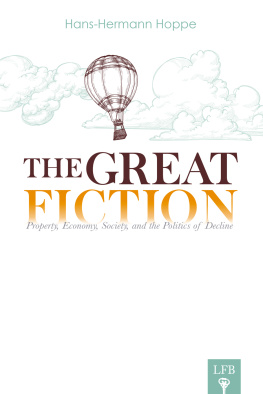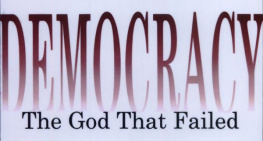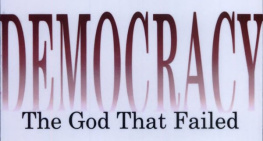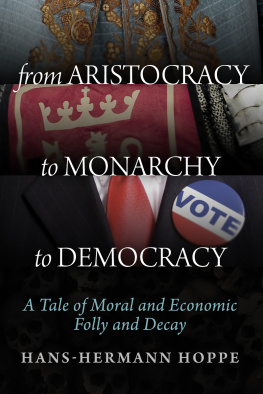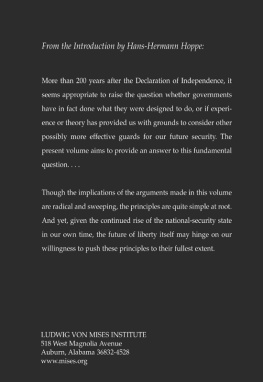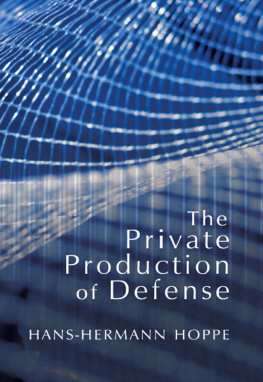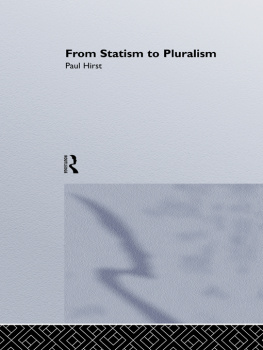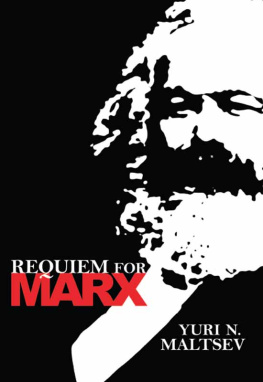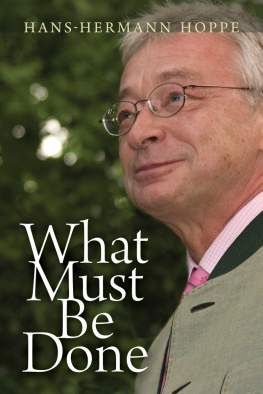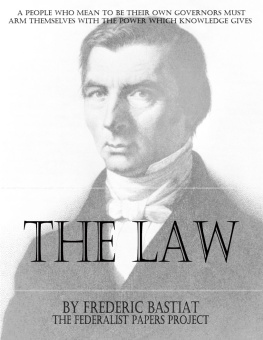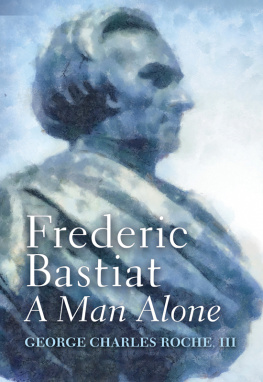Hans-Hermann Hoppe - The Great Fiction: Property, Economy, Society, and the Politics of Decline
Here you can read online Hans-Hermann Hoppe - The Great Fiction: Property, Economy, Society, and the Politics of Decline full text of the book (entire story) in english for free. Download pdf and epub, get meaning, cover and reviews about this ebook. year: 2012, publisher: Laissez Faire Books, genre: Politics. Description of the work, (preface) as well as reviews are available. Best literature library LitArk.com created for fans of good reading and offers a wide selection of genres:
Romance novel
Science fiction
Adventure
Detective
Science
History
Home and family
Prose
Art
Politics
Computer
Non-fiction
Religion
Business
Children
Humor
Choose a favorite category and find really read worthwhile books. Enjoy immersion in the world of imagination, feel the emotions of the characters or learn something new for yourself, make an fascinating discovery.
- Book:The Great Fiction: Property, Economy, Society, and the Politics of Decline
- Author:
- Publisher:Laissez Faire Books
- Genre:
- Year:2012
- Rating:4 / 5
- Favourites:Add to favourites
- Your mark:
The Great Fiction: Property, Economy, Society, and the Politics of Decline: summary, description and annotation
We offer to read an annotation, description, summary or preface (depends on what the author of the book "The Great Fiction: Property, Economy, Society, and the Politics of Decline" wrote himself). If you haven't found the necessary information about the book — write in the comments, we will try to find it.
The Great Fiction, published by Laissez Faire Books, is an expansive collection of his writings centering on the theme of the rise of statism and its theoretical underpinning. Some essays have been published in mostly obscure or offbeat places, while others are new and have never appeared in print. Together they constitute a devastating indictment of the many forms of modern despotism and a sweeping reconstruction of the basis of state management itself.
The title comes from a quotation by Frederic Bastiat, the 19th-century economist and pamphleteer: The state is the great fiction by which everyone seeks to live at the expense of everyone else. He does not say that this is one feature of the state, one possible aspect of public policy gone wrong, or one sign of a state gone bad in a shift from its night-watchman role to become confiscatory. Bastiat is characterizing the core nature of the state itself.
The whole of Hoppes writings on politics can be seen as an elucidation on this point. He sees the state as a gang of thieves that uses propaganda as a means of disguising its true nature. In fleshing this out, Hoppe has made tremendous contributions to the literature, showing how the state originates and how the intellectual class helps perpetuate this coverup, whether in the name of science, or religion, or the provision of some service like health, security, education, or whatever. The excuses are forever changing; the functioning and goal of the state are always the same.
This particular work goes beyond politics, however, to show the full range of Hoppes thought on issues of economics, history, scientific methodology, and the history of thought. It is divided into five sections: Politics and Property, Money and the State, Economic Theory, The Intellectuals, and Biographical. The content ranges from highly structured academic pieces to prepared lectures to impromptu interviews. Together they present a sampling of his perspective a range of issues.
In each field, he brings that same level of rigor, that drive for uncompromising adherence to logic, the fearlessness in the fact of radical conclusions. In light of all of this, it seems too limiting to describe Hoppe as a mere member of the Austrian or libertarian tradition, for he really has forged new paths in more ways than he makes overt in his writings. We are really dealing here with a universal genius, which is precisely why Hoppes name comes up so often in any discussion of todays great living intellectuals.
It is true, then, that Hoppe stands with a long line of anarchist thinkers who see the state as playing a purely destructive role in society. But unlike the main line of thinkers in this tradition, Hoppes thinking is not encumbered by utopian illusions about society without the state. He follows Ludwig von Mises and Murray N. Rothbard in placing private property as a central element in social organization. In justifying this point of view, Hoppe goes far beyond traditional Lockean phrases. He sees private property as an inescapable institution in a world of scarcity, and draws on the work of contemporary European philosophy to make his claims more robust than any of his intellectual predecessors did.
To search for titles from Laissez Faire Books, enter a keyword and LFB; e.g., Economics LFB
Hans-Hermann Hoppe: author's other books
Who wrote The Great Fiction: Property, Economy, Society, and the Politics of Decline? Find out the surname, the name of the author of the book and a list of all author's works by series.

